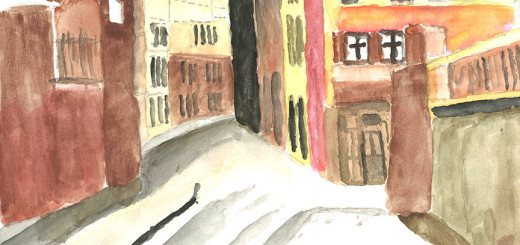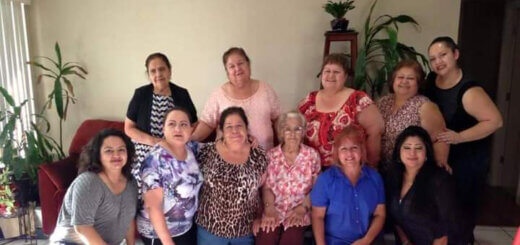Sonoma County resident encourages caregivers to ask for help
Gene Girimonte met the love of his life, Art Curtis, over 35 years ago. Together they dealt with the loss of family, civil rights issues and eventually Alzheimer’s. With the support of the Alzheimer’s Association, and other local organizations, Gene was able to care for Art until Art passed in 2018. Gene is now a volunteer for the Alzheimer’s Association so that he can help other caregivers who may feel alone.
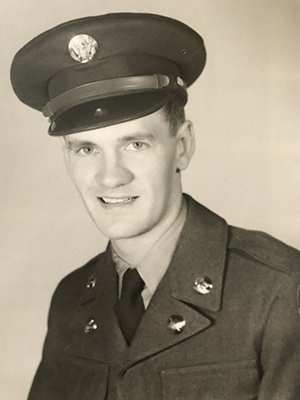
Learning to move through grief
Art Curtis was a well-educated, funny man who dreamed of becoming a U.S. Senator or Ambassador but instead worked in the film industry making educational films. He was easy to like, full of life and didn’t have anything bad to say about anyone.
Unfortunately, he also had a lot of death in his life, losing two children, his former wife, and a granddaughter. “It was inspiring to see how he was able to cope with the loss, overcome it and move forward,” shared Gene. “He didn’t ignore his grief but, through the strength of his own character, was able to move on. Watching him has taught me so much about my own ability to cope with losing him.
“Losing your soulmate is unlike any other loss. I’ve lost other family members but losing Art is a whole different realm. I am able to move forward with my life because I carry the greatness of him with me.”
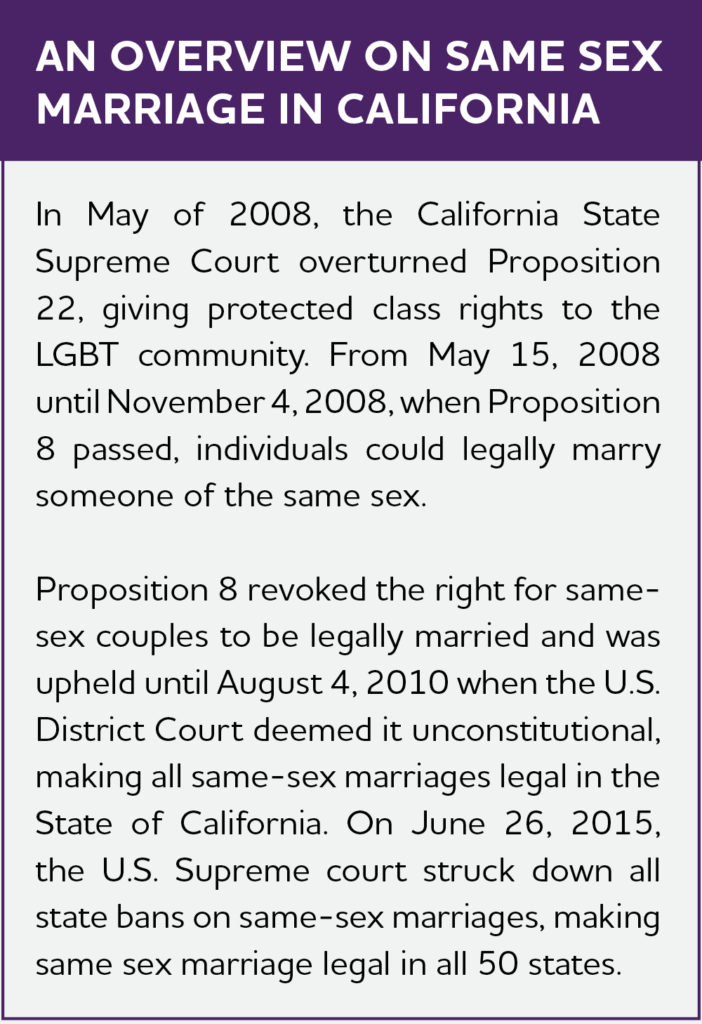
A civil rights issue
Gene and Art met in 1985 at a restaurant in San Francisco. They fell in love and were together from that time until Art’s death. We previously interviewed them in 2014 about their love story.
After 23 years together, Art and Gene took part in what Gene calls “the island marriages” that occurred in the summer and fall of 2008. “We’d talked about getting married,” shared Gene. “We were committed to each other, and our finances were mixed.
“We didn’t need the legal paperwork to tell us we were married. When it became a civil rights issue, we said we needed to be a part of this. It’s important to stand up and be heard.”
Art and Gene married on November 3, 2008, the day before Proposition 8 passed, which eliminated the rights of same-sex couples to marry. Grandfathered in, they were able to keep their legal marriage status.
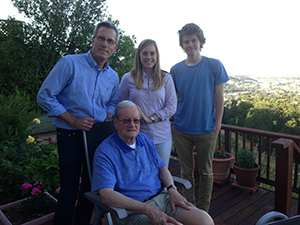
The bookmark stopped moving
A voracious reader, Art always had several books he was reading on his table. “I began to notice that bookmarks weren’t moving,” said Gene. “Art was particularly excited to read this book about President John F. Kennedy. We’d gone to see the author, and had it signed, but I realized he wasn’t reading it. When I asked him why he said, “˜I can’t remember the pages before. I keep going backward instead of forward.'”
Next, Gene began to notice odd behaviors at the dinner table. Art would put his glass at the edge of the table where he could easily knock it over or he would reach for things and miss.
When Gene started receiving late notices from bill companies, he knew something was really wrong. “At the time, I was still working and Art was maintaining our house” said Gene. “He insisted we weren’t getting our bills. Then one day, I saw him tossing all the bills in with the junk mail. It was completely out of character.”
Gene took Art to the UCSF Memory and Aging Center in 2010. Art was diagnosed in 2011 with vascular dementia and Alzheimer’s.
Connecting with the Alzheimer’s Association
After his diagnosis, Art joined a local reading group once a week. Sadly, one day Gene received a call from the facilitator stating that Art was no longer able to participate in the group.
“It was devastating,” said Gene. “Art loved going to that group. Luckily, the facilitator recommended I contact the Alzheimer’s Association. I called them immediately and within a few weeks we were signed up for a support group.”
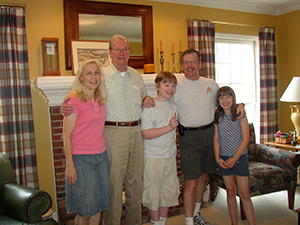
Joining an Early Stage Support Group
Gene and Art participated in an early stage support group. Two support groups meet at the same time, one for the person living with the disease and one for the care partner.
“It was hard for me to juggle getting to my support group every week since I was still working,” said Gene. “Initially, my boss was hesitant to let me leave at one o’clock to attend the group. I explained to her that I can’t miss this group. It’s keeping me buoyed and it’s getting harder and harder to balance the stress.
“I can’t speak highly enough of support groups. It gives you permission to feel the way you’re feeling because you know you’re not alone. I’ve remained friends with a few of the people from that support group.
“Art was the last person from his group to pass. I went through this experience with all of my group partners, and then it was my turn.”
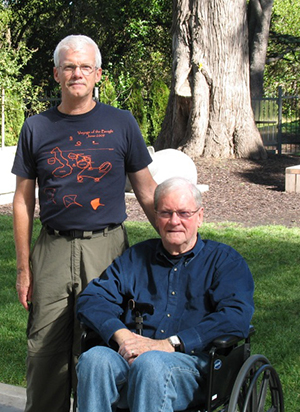
Being his husband’s advocate
Gene and Art were not afraid to be who they are, having been openly gay for so long. They were well connected to resources, had a primary care doctor that had known them for years and overall experienced very few issues related to their sexual orientation.
“Once in a while we might find a hospital or emergency room that would be reluctant to let me be part of the consultations,” shared Gene. “I made sure they knew I was his husband, that Art had Alzheimer’s and that I needed to be involved.
“When Art moved into a care facility, staff members would ask personal questions about our relationship. It puts you in an uncomfortable situation. You wonder if they are going to treat him differently once they know he’s gay.”
Becoming a community educator
Six months after Art passed, Gene found himself with a lot of extra time. He knew he wanted to donate his time to one of the many local organizations that helped him along his caregiving journey.
“I went to a health fair at the senior center,” said Gene. “It was an emotional day for me, looking at all the booths of all the people who had helped me along the way.
“I wanted to do something productive with my time. I already knew so many people at the Alzheimer’s Association and it’s nice to give back to the organization that gave me so much.”
Gene volunteers as a Community Educator for the Alzheimer’s Association. Due to the shelter in place orders, Gene hasn’t been able to do a presentation on his own, but he is looking forward to it.
“To become an official volunteer, you have to go through a formal onboarding process, which I appreciated,” said Gene. “I like to see the quality of a product and this showed me what a great organization this really is.”
Once it is safe for the Alzheimer’s Association to offer programs in person again, Gene is looking forward to helping others by sharing his personal experiences with them. “I will have fulfilled my role as a volunteer when I can help people feel like they’re not alone. I want to help them make this journey easier by giving them a few tools.”
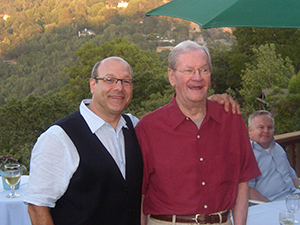
Tips for other caregivers
Gene has two key tips that he shares with other caregivers:
- Ask for help.
- Call the helpline.
Ask for help
“I went way too long before I asked for help,” shares Gene. “You think you can do it all, I know I did, but you can’t. You have to ask for help. We’ve been taught that asking for help is a weakness, but it’s not. It takes real character and strength to say, “˜Hey, I need help. I cannot manage this all by myself.’
“Most people feel good when they get to help someone, I know I do. My work was suffering, I was unhappy and depressed. I wasn’t meeting Art’s needs the best that I could. I finally decided to go to therapy and that was the best decision I could have made.”
Call the helpline
“I tell people to contact the Alzheimer’s Association Helpline [800.272.3900],” said Gene. “I keep the 800 number in my phone at all times and give it to anyone who might need it. I used it more than once at all hours of the day or night. There was always someone available to help.
“It’s not a call center, you’re talking to an actual person from the organization who has the expertise, the knowledge, and the skills to handle whatever situation you’re in. If they don’t know the answer, then they know how to drive you to the right places. Best of all it’s a free call, they just want to help you.”
For more information on LGBT resources visit our website. For help with tips, tricks or other caregiver resources, visit alz.org/care or call our Helpline at 800.272.3900.
To become a volunteer, sign up at alz.org/norcal/volunteer.
Learn more:





